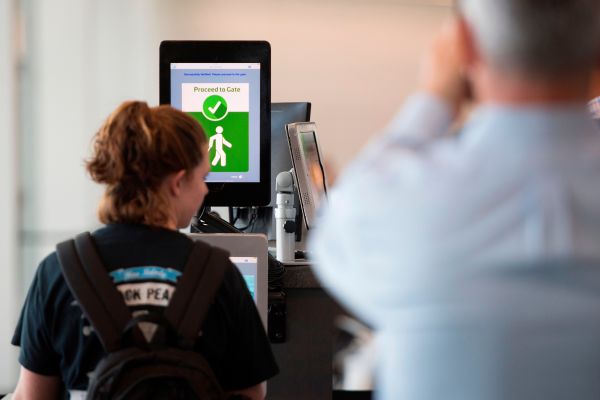Delta will later this year roll out facial recognition at its terminal at Atlanta International Airport for anyone traveling on an international flight.
The airline said the biometric facial scanning is optional — a move that will shave off a few minutes off each flight — but will help border and pre-flight security authorities before jetting out of the US. It’s the latest roll-out of facial recognition trials at Detroit Metropolitan and New York John F. Kennedy airports.
What might be convenient to some, to others it’s a privacy violation — and some argue that without approval from Congress, it could be illegal.
Facial recognition at airports is a controversial move, one that’s been decried over the past year since it first rolled out last year. Six major US airports completed trials as part of a wider rollout — aimed to be completed by today. CBP relies on airlines to collect facial recognition data, something Delta doesn’t shy away from. The airline said facial recognition “is a natural next step following CBP and Delta’s optional facial recognition boarding tests” at Atlanta.
Customs and Border Protection has previously said that the move was to crack down on those who overstay their visas, but privacy advocates said that it steps on privacy rights.
Delta said that travelers who don’t want their faces will be given several opportunities to opt-out, Delta spokesperson Kathryn Steele told TechCrunch, and can continue to “proceed normally” through security.
CBP spokesperson Jennifer Gabris said that only US citizens can opt out, and will have their documents checked manually.
Homeland Security, which oversees border security, struck a different tone when last year it said that anyone who wanted to opt out of having their faces scanned should “refrain from traveling.”
Biometric data collected by Delta is stored by the government for two weeks, but exit records on citizens and green card holders are held for 15 years, and 75 years for non-immigrant visitors.
If that makes you uneasy, don’t expect the rollout to slow any time soon. Homeland Security continues to expand the program and is expected to roll out to land borders. Airport biometric scanners last month caught a traveler with a fake passport after using the facial scanners at Washington Dulles airport.
Even with one success story in the bag, it’s a tough sell to convince the government to pull back now.
